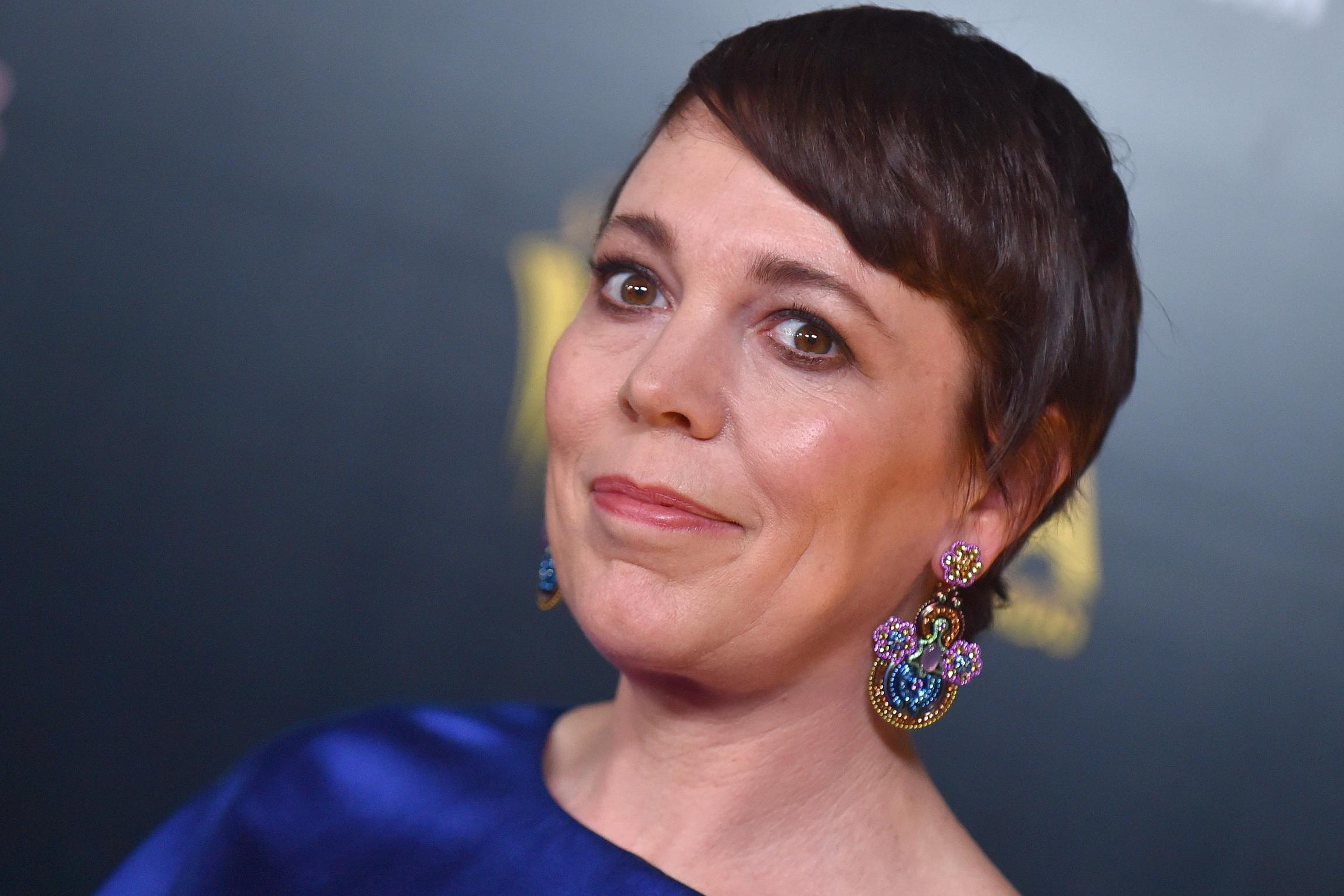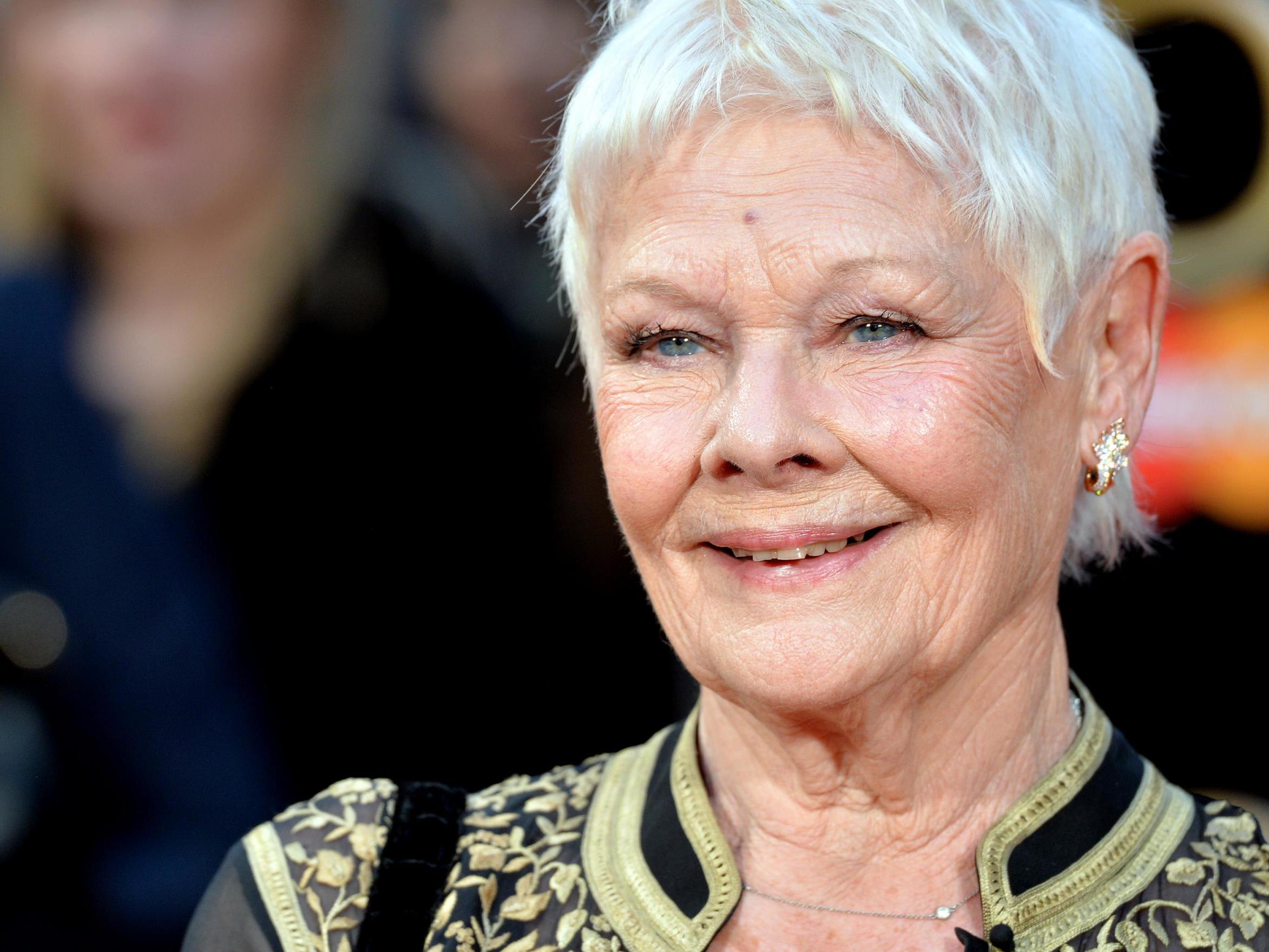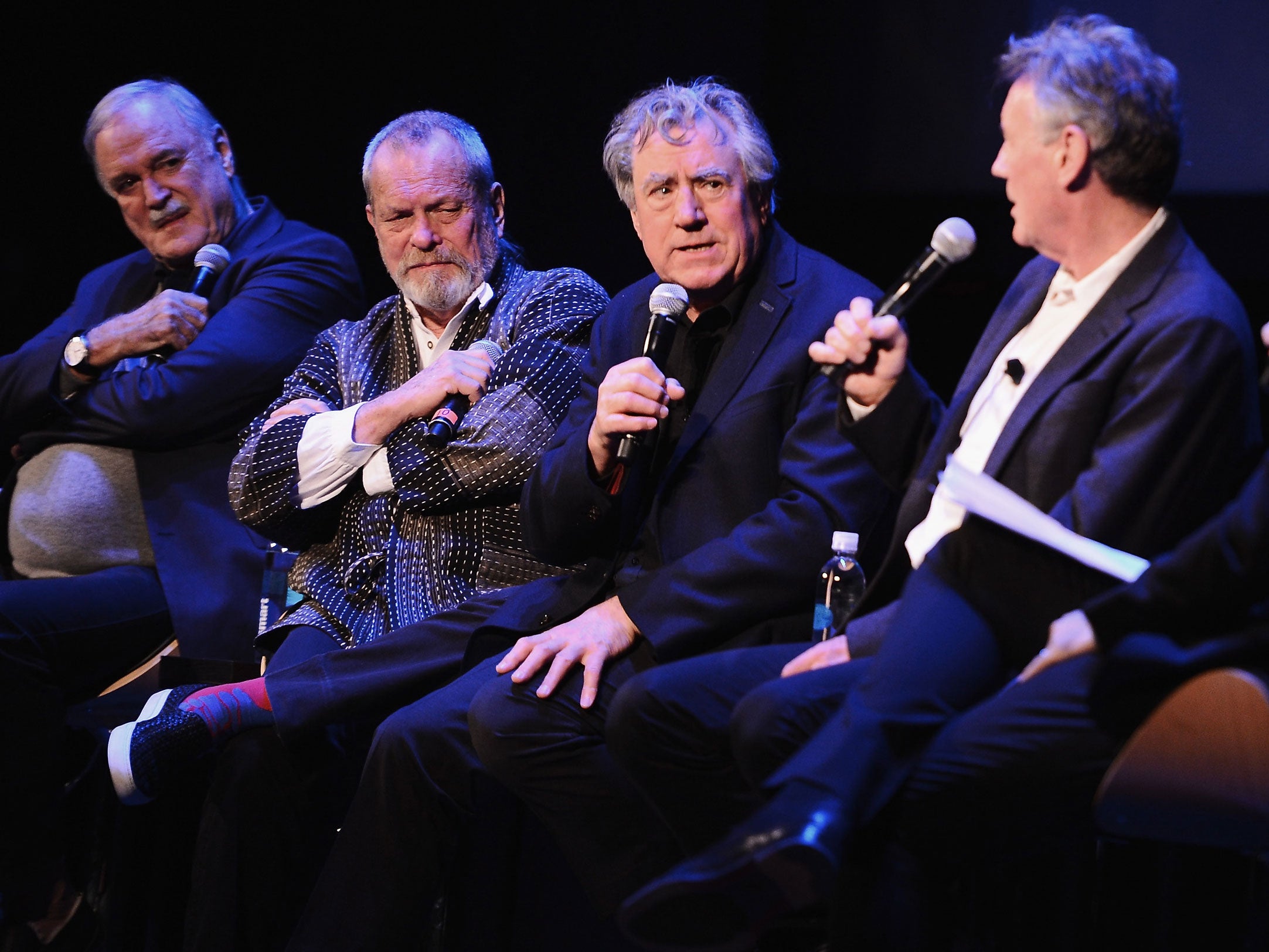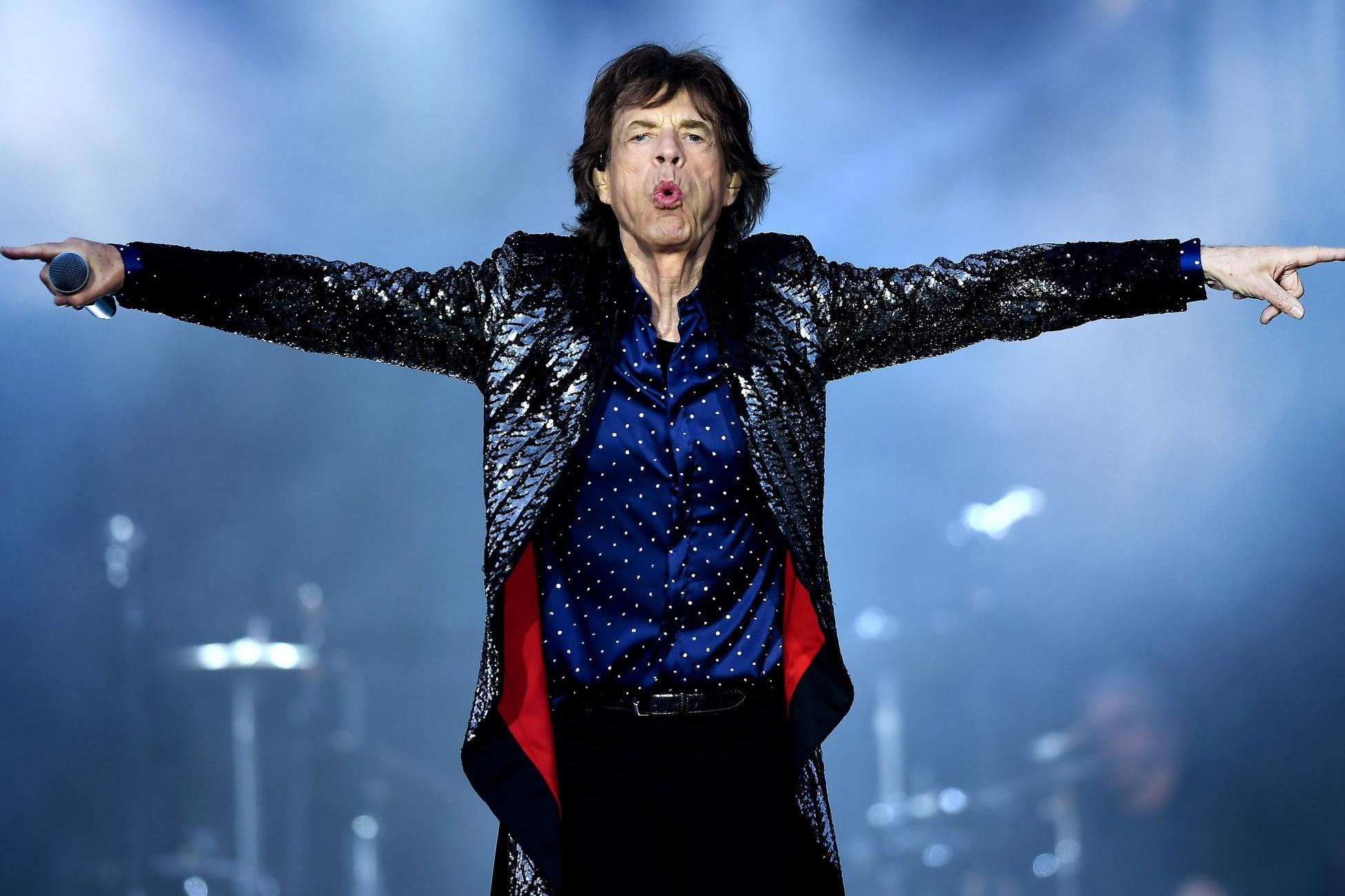From Olivia Colman to Judi Dench: What does a celebrity have to do to earn ‘national treasure’ status?
With Colman likely to win Best Actress at the Baftas, David Lister asks what you need to do to become truly adored by your country


Your support helps us to tell the story
From reproductive rights to climate change to Big Tech, The Independent is on the ground when the story is developing. Whether it's investigating the financials of Elon Musk's pro-Trump PAC or producing our latest documentary, 'The A Word', which shines a light on the American women fighting for reproductive rights, we know how important it is to parse out the facts from the messaging.
At such a critical moment in US history, we need reporters on the ground. Your donation allows us to keep sending journalists to speak to both sides of the story.
The Independent is trusted by Americans across the entire political spectrum. And unlike many other quality news outlets, we choose not to lock Americans out of our reporting and analysis with paywalls. We believe quality journalism should be available to everyone, paid for by those who can afford it.
Your support makes all the difference.Olivia Colman now has a Bafta nomination for Best Actress to add to her Golden Globe win in the same category. An Oscar nomination is likely to follow, and an Oscar win is looking more probable than possible. But will she achieve the hardest, most coveted and most elusive award of them all? Will she become a “national treasure”?
Though slightly young for the title, at 44, she does seem to be well on her way, and has all the necessary attributes. She is admired, even loved, she is ubiquitous and – as proven in her acceptance speech referring to her co-stars as “ma bitches” – she has that essential national treasure requirement: she’s a bit cheeky, as well as real and approachable. If she does achieve national treasure status, she will, as long as she has that title, be untouchable, beyond criticism. For criticising a national treasure is beyond the pale. Alan Bennett once said the worst-taste T-shirt he could think of would be one that said: “I hate Judi Dench.”
Dench, of course, is one of our foremost national treasures. So, too, actually, is Alan Bennett. Best keep him off those negative T-shirts as well. Indeed, Bennett, in one of his public utterances, summed up perfectly some of the key ingredients for being a national treasure. He said: “I am thought to be kindly, cosy and essentially harmless. I am in the pigeon-hole marked ‘no threat’.”

But what particularly fascinates me is who of our cultural titans is and is not admitted to this exclusive club. Alan Bennett is a national treasure, but his Beyond the Fringe colleague, the talented and prolific director Jonathan Miller, isn’t. The lack of so big a public profile hasn’t helped, though also a lack of public cheekiness, bonhomie and easy charm (all exemplified by national treasure, Terry Wogan) has ruled him out.
Dame Judi is a national treasure, Dame Maggie Smith, particularly post-Downton Abbey, is also national treasure. But Vanessa Redgrave, of the same vintage, somehow isn’t. Part of the reason, I suspect, is that Redgrave lacks that essential requirement of humour and cheekiness, at least in public. A much bigger disqualification, though, is that she was for much of the Sixties and Seventies highly political, and on the far left too, as a leading member of the Trotskyite grouping, the Workers’ Revolutionary Party.
The British are a bit sniffy about left-wing arts figures, and they have long memories. Sadly, having supreme acting ability over six decades is not sufficient to qualify for national treasure status.
Who makes it and who doesn’t is a disconcerting conundrum. Of the former Pythons, there can be little doubt that Michael – now Sir Michael – Palin has long since made it. Again, he has the essential attributes of talent: longevity, inoffensiveness and, of course, a lovable naughtiness. He is, in short, talented and cuddly. And cuddliness helps no end in being a national treasure.
But if Palin makes it OK, his leading Python comrade John Cleese doesn’t. He remains un-knighted and, far more importantly, lacking in national treasure recognition.
Part of the problem is that Cleese, like his greatest creation, Basil Fawlty, has become something of a curmudgeon. His public utterances have, for some years, been negative, be they about the world, the press or a former wife, and curmudgeons are barred from the national treasure arena.

Watch Apple TV+ free for 7 days
New subscribers only. £8.99/mo. after free trial. Plan auto-renews until cancelled

Watch Apple TV+ free for 7 days
New subscribers only. £8.99/mo. after free trial. Plan auto-renews until cancelled

Away from acting, David Hockney can bask in national treasure glory. Longevity, a blazing talent and crucially, a wry Yorkshire humour, affirm his place. Though he’s a much younger man, it is hard to see Damien Hirst ever achieving his place among the select group. Avant-garde experimentalism (never a good route to NT status) mixed with a certain professional ruthlessness and acquisitiveness make the journey an almost impossible one. Tracey Emin is likely to be similarly disappointed for similar reasons.
Some art forms seem to miss out altogether. There aren’t really any classical music national treasures. Sir Simon Rattle is certainly “big” enough nationally and internationally, but is too aloof and little known by the public to qualify. You might think that a virtuoso violinist such as Nicola Benedetti, who has the additional quality of doing excellent educational work, might qualify. Yet she is lamentably little known by the public at large. To be a national treasure one has to have a reach well beyond one’s chosen art form. Fellow violinist Nigel Kennedy perhaps comes nearest to qualifying, but has slightly disappeared from view.
In dance, Dame Darcey Bussell has a strong claim to the title, but it’s likely that this owes as much, if not more, to being a judge on Strictly Come Dancing, rather than her many years as prima ballerina with the Royal Ballet
In comedy, the late Ken Dodd certainly achieved national treasure status, as did very many of that golden generation of comedy, from Morecambe and Wise to Frankie Howerd, Peter Sellers, Spike Milligan, Tommy Cooper and numerous others. Today’s comedians are at present too young to enter the national treasure fray. But one can discern, even now, that Sarah Millican and Michael McIntyre have all the right ingredients to make them certain contenders in 10 or 20 years’ time.
And then there is rock and pop music. That, too, throws up its conundrums. Paul McCartney has long been seen as a national treasure, Mick Jagger never, despite the same career span. David Bowie was adored and was a national hero, but a national treasure? I think he just failed to grab that title. I’ve met all three gentlemen, and all three had charisma in spades as well as the obvious track record.
But Bowie’s artistic innovation and experiment did not, perhaps, sit easy with the prime-time audience that tends to hand out national treasure status. Also, he lived abroad in recent years, a negative factor, which also may exclude Ringo Starr and the otherwise suitable Sean Connery. Jagger… well, as I say, memories are long and the public views a snarling and anarchic rebelliousness as inappropriate.

Other Sixties figures, who are still going strong, such as Roger Daltrey of The Who and Ray Davies of The Kinks, don’t seem to come anywhere near to national treasure status. Brit Awards, Grammys and the like are a piece of cake compared to this elusive and ill-defined trophy.
The power of the prime-time audience in deciding who can join the club probably rules out the likes of Radiohead ever getting there. But of the even younger talents, Ed Sheeran, if he can keep going strong, has many of the qualifications. Adele looks even more likely to retain a cross-generational popularity which boosts her chances. Lily Allen, on the other hand, has broken too many taboos, personal and political, and, while admired by the public, is not embraced by it.
Those who undiscernibly and invisibly hand out national treasure status are an unforgiving crowd. Sometimes they even give out the accolade and take it away again.
The Beatles were national treasures from 1963-66, but then lost a degree of public affection when personal lives became complicated, Lennon embraced political causes, and they ceased to be the cheery mop tops. It took some years for McCartney to get back into the national treasure fold. Lennon and Harrison arguably never did.
And then, of course, national treasure status is occasionally given too hastily and regretted afterwards. The two words were routinely used to describe Jimmy Savile on his death in 2011.
But, generally, more care is taken in dispensing the title, and, once given, it is the recipient’s for life and beyond. And Olivia Colman has, so far, not put a foot wrong. It is imperative, though, that she doesn’t make any slips. Those post-award jokes need to remain cheeky and lovable. Offence, once given, will not be forgotten. She is probably a wealthy woman, but needs to keep that quiet, as all sensible national treasures do. She needs to see Judi Dench as her role model, stay ubiquitous, be versatile in her choice of roles, crucially remain modest and endearing, stay out of politics, at least of the extreme sort, and never lose that impish sense of humour. If she succeeds in all of that, then she is, to use the pun that ought to be avoided, a favourite for the title.
Join our commenting forum
Join thought-provoking conversations, follow other Independent readers and see their replies
Comments